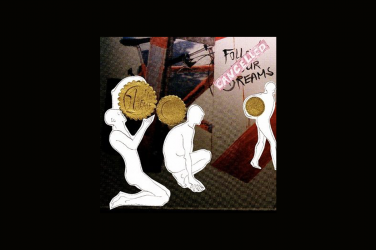Anti-establishment parties are forming all over Europe, from the Italian Movimento Cinque Stelle to the French Front National, and Germany is no exception. Pegida stands for “Patriotic Europeans against the Islamisation of the West” and began as a Facebook group created by Lutz Bachmann in October 2014. The group has now been swelling through social media, resulting in major demonstrations mostly in cities of the former GDR. It brought 25,000 people marching on January 12th after the Charlie Hebdo attacks in Paris. Having been often pinned as “pinstripe Nazis” by the public and the press, and as people who have “coldness, prejudice and hatred in their hearts” by the German Chancellor Angela Merkel herself, one can’t help but wonder how this movement has managed to gain such momentum in Germany. What and who does Pegida actually represent and what relevance does this have for Germany’s present and future?
Neo-Nazis or mundane xenophobes?

To begin with, what beliefs do Pegida even promote? Similarly to UKIP even more than the Front National, Pegida members state that they are mainly concerned by the magnitude of immigration in Germany, currently hitting a 20-year-high. The anti-immigration discourse in Europe is worryingly increasing with most European governments, such as in the UK and Italy promising a reduction in immigration to fend off such parties and their radical desires to cut down immigration. However, unlike most European anti-establishment parties, the leaders of Pegida focus mainly on what they perceive to be the Islamisation of the West, some members stating that the immigration of Muslims has led them to feel like foreigners in their own country. This focus against Islam is perhaps what distinguishes them from parties such as UKIP: in a context of atrocities by Islamic fundamentalist groups such as ISIS makes Pegida all the more appealing to an even wider public.
Unlike most European anti-establishment parties, the leaders of Pegida focus mainly on what they perceive to be the Islamisation of the West, some members stating that the immigration of Muslims has led them to feel like foreigners in their own country.
Echoing UKIP’s proposal for a 5-year ban on immigration in the UK, Pegida too is demanding for tighter immigration controls. Alongside this they went as far as to requesting keeping war refugees in their homelands, having foreigners in Germany speak German at home and deporting criminal asylum seekers. Ironically this last request was promoted somewhat hypocritically by Lutz Bachmann who himself, after being convicted for drug possession, assault and burglary escaped to New Zealand to avoid German justice, and was subsequently deported back to Germany only to joke about New Zealand’s superior deportation system. Lutz Bachmann is the founder of Pegida; he recently became co-leader of Pegida after a short period in disgrace due to a photo of him posing as Adolf Hitler being leaked to the press, which then turned out to have been digitally altered.
After all this blatant hostility it might come as a surprise that in their 19-point programme they make sure to steer well away from racist language by claiming they are only against “preachers of hate, regardless of what religion, and against radicalism whether religiously or politically” and not against integrated Muslims. The same Lutz Bachmann, who made his dubious case against criminal asylum seekers, adopted the most clichéd excuse to mask his xenophobic views by stating he is not a racist because he has Muslim friends. What we witness here is the awkward position any xenophobic movement can expect in a historically burdened society. In order to preserve at least some credibility and be allowed to exist legally, they have to defend themselves against Nazi and far-right claims, by stating they are “patriots not Nazis”. Nevertheless, they have links to neo-Nazis and football hooligans who have been present at their rallies; also, their anti-press attitude is often expressed by chanting about the press being liars with the phrase Lügenpresse, used in the past by the Nazis. The recent scandal of photos of Bachmann posing as Hitler certainly did not help fend off the Nazi and far-right claims that go hand in hand with Pegida’s policies.
GDR shadows in the closet

Marches organised by Pegida consciously echo the famous 1989 anti-communists rallies in former East Germany with taking place every Monday and using the slogan “We are the people” (Wir sind das Volk). This emphasis is only natural given the organisation’s significantly higher popularity in the territory of the former GDR. Reasons as to why Pegida is far more popular in Eastern Germany have been up for speculation; in general xenophobic attitudes have been known to be more widespread in Eastern Germany, this being attributed to higher unemployment rates. The typical marcher is a middle-aged Eastern German man who feels alienated in post-reunification Germany, defined by many Germans as people in the “valley of the clueless”, a nickname given to Saxony during the communist dictatorship due to lack of access to Western media. Harsh as this sounds, relative economic deprivation and high rates of unemployment still characterise Saxony, feeding into social dissatisfaction.
Therefore the crowd is not made up solely by neo-Nazis and hooligans, despite their being visibly in their midst. Whilst the far right and their extremist ideology make up the core of the protests both in an ideological sense and due to their more notorious participation and visibility, the bulk of the rallies are angry citizens attracted by the alternatives to institutionalised politics that Pegida has to offer. In this sense, the strategy of deploying a more moderate voice at least officially, clearly does work well. It is a widely held opinion that the political elite is failing to provide a concrete discourse on immigration now with a major influx of immigrants and refugees arriving in Germany from the Middle East and war-torn zones. Around a third of all refugees in the EU are expected to migrate to Germany in 2015, putting a huge pressure on the economy, the welfare systems and political life in general. Pegida offers authoritarian solutions and a medium through which to express frustrations. One of its major advantages is its readiness to become a platform where such frustrations are allowed to be voiced, something often extremely uncomfortable for a country with such a past. The anti-establishment vein of Pegida’s anti-immigration discourse has struck a nerve with more countries and has spread not only throughout Germany (only really receiving success in Dresden and other East German cities but reaching Berlin and other West German cities as well) but also to Denmark, Czech Republic, Norway and recent protests in the UK, one in Newcastle and one is being organised in London at the moment. This of course partly fits into the parallel organisations still working in these countries, but also served as an impulse for their actions. Pegida distinguishes itself from other parties in being a xenophobic movement spreading to other countries; more than a party in itself.
Many Pegida-rallies have been dwarfed by counter-protests.
Patriotism at unease in Germany

Patriotism is not a sentiment that comes easily to post-Nazi Germany; there is even a composite word in German for the struggle of coming to terms with the past – Vergangenheitsbewältigung. At a Charlie Hebdo protest in Hamburg there was talk of a German sense of responsibility and duty to not alienate but rather help integrate the religious and ethnic minorities. Many Pegida rallies have been dwarfed by counter protests; such as the 12th January protest in Dresden whereby the numerous 25,000 Pegida supporters were faced by 100,000 anti-Pegida protestors. Similarly in Newcastle 200 Pegida UK supporters were faced by 2,000 people protesting against them. Another widely supported anti-Pegida protest is the lights-out protest whereby Cologne cathedral, the Brandenburger Tor and bridges across the Rhine have switched their lights off in defiance of Pegida protests. This notwithstanding, Bachmann confirmed that Pegida will have a meeting at the Bundestag by the end of March to discuss immigration policies. A poll by the Friedrich Ebert Foundation has shown that anti-foreigner attitudes are at a historic low in Germany; alongside these xenophobic campaigns are plenty of pro-refugee demonstrations and initiatives. Most refugees are actively choosing to settle in Germany – not only because of its booming economy but also for a welcoming atmosphere and culturally diverse society. Truth is, xenophobic and anti-establishment parties have been on the rise in Europe since the beginning of the financial crisis. As social and economic tensions intensify, with slightly less radical rhetoric many of them have managed to gain support from average citizens. The support they are obtaining from the mainstream is legitimising their extreme politics and creating divisions within European nations. One thing is certain, these anti-establishment parties are destabilising European institutions and it’s looking like Pegida’s members are increasing – if this is a beginning of a larger process or merely a transitory period is yet to be seen.
Teaser photo: strassenstriche.net (Flickr); Licence: CC BY-NC 2.0










